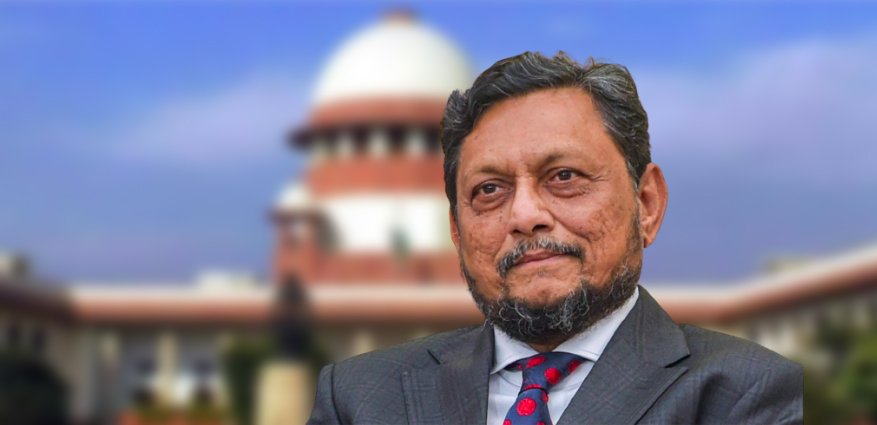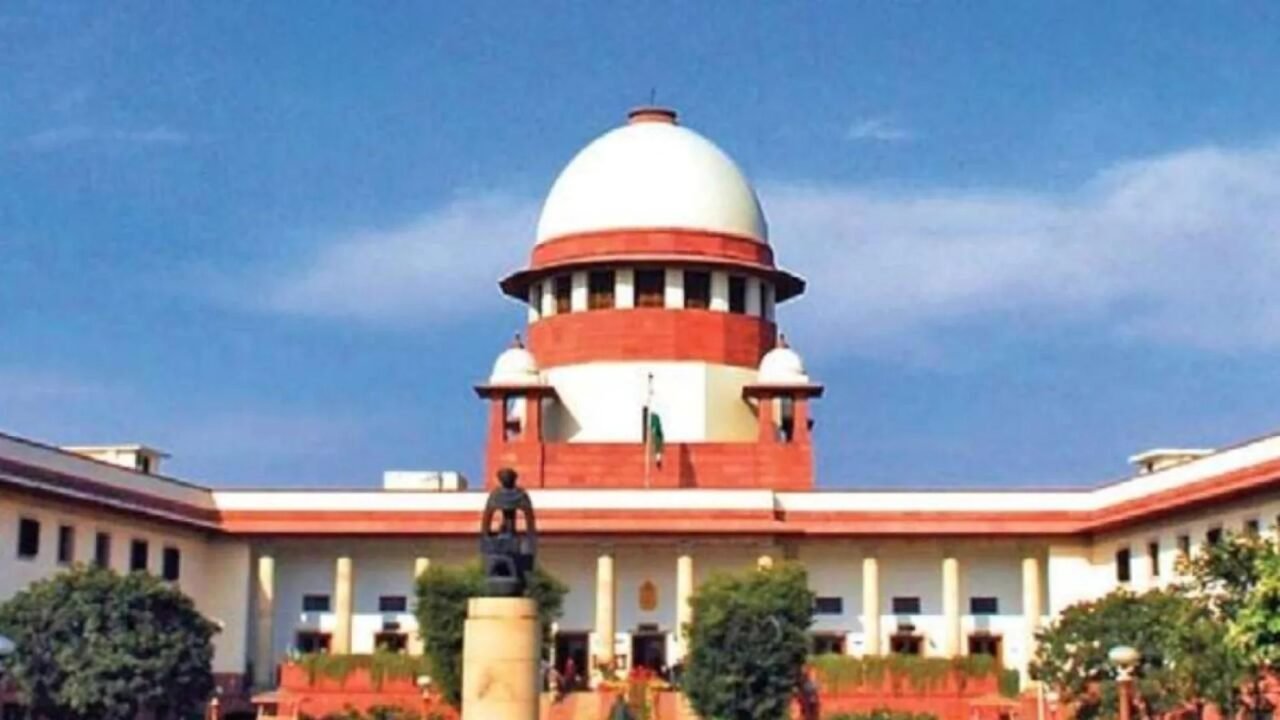NEW DELHI, Feb 10: Judicial independence is critical for the operation of legal institutions, particularly in volatile political contexts, the International Court of Justice judge Hilary Charlesworth said here on Saturday.
Hilary Charlesworth, an Australian international lawyer who has been a Judge of the ICJ since 5 November 2021, was delivering the second annual lecture on ‘The International Court of Justice: A legal forum in a political environment’ in the Supreme Court premises here.
Referring to the role of the ICJ in the Kulbhushan Jadhav case, she said though the international court’s judgement did not resolve the tension between India and Pakistan, it “at least it provided a resolution and (that too a) legal resolution to an acute problem dividing them.”
On April 10, 2017, Jadhav was sentenced to death by a Field General Court Martial in Pakistan. The ICJ stayed his execution pending final adjudication of the case.
The ICJ had held that Pakistan will have to review the entire process of trial and conviction of Kulbhushan Jadhav and provide consular access to India.
She said judicial independence in the international context was aimed at eliminating any non-legal considerations that might affect a judge’s reasoning.
“Judicial independence is critical to the operation of legal institutions, particularly in volatile political contexts,” she said.
Charlesworth said that the international judiciary can draw inspiration from the distinguished history of independence of India’s apex court.
“Our two courts, the Supreme Court of India and the ICJ, while very different, I noticed that we are of a very similar age, you are going into your 75th year, we’re going into our 78th year,” she said.
But both faced the task of “navigating highly charged political environments,” Judge Charlesworth said.
“The international judiciary, I think, can draw inspiration from the Supreme Court of India’s distinguished history of independence, innovation. What is also really impressive to me, is the Supreme Court’s courageous capacity of introspection,” she said.
Quoting Chief Justice D Y Chandrachud’s recent talk at the ICJ’s ceremonial sitting, the judge said, “Introspection is the art of bringing the seemingly unattainable within the line of vision.”
She congratulated the SC on its foundation day and wished it a “rich and rewarding future.”
Judge Charlesworth said the idea of an international judicial tribunal came to fruition after the first world war through the covenant of the League of Nations in 1919. It conducted its last public sitting in 1939, just after the outbreak of the second world war, she said.
The ICJ, established under the charter of the United Nations was distinct from the earlier court and elevated to the status of a principal organ of the UN, She said.
She said the ICJ is composed of 15 judges who are required to be of different nationalities and are elected by the United Nations General Assembly and the United Nations Security Council, which vote simultaneously, for nine-year terms which are renewable.
The judge pointed out that the ICJ had a “poor record” in giving attention to gender balance and in almost eight decades, just six women had been elected as judges as compared to 109 men.
Speaking about Indian judges at the ICJ, she said Judge Nagendra Singh was the longest serving judge, being in the court for 15 years in the 1970s and 80s.
“In three out of the six cases involving India during the court’s (last) eight decades, there was no Indian judge already on the bench. And so various distinguished Indian jurists were appointed as judges ad hoc,” Judge Charlesworth said.
“There was some discussion whether the court should have compulsory jurisdiction during the drafting of the UN Charter at the San Francisco conference in 1945. Ultimately, the view of the United States, the Soviet Union and the United Kingdom prevailed, and that was that jurisdiction shall be voluntary and that’s the situation today,” she added.
Judge Charlesworth described the three ways by which cases came before the ICJ: one, by states entering into special agreements to submit a dispute, two, when states were parties to a treaty that granted it jurisdiction to decide disputes, and three, by making a standing declaration accepting the compulsory jurisdiction of the court.
The third point, the judge underlined, comes usually with “broad reservations,” such as India excluding 11 categories of dispute, including disputes in regard to matters which are essentially within its domestic jurisprudence.
She said that the ICJ also had an advisory jurisdiction, where certain UN organs could request advice on any legal question.
“In its 78 years, the ICJ has considered 182 contentious cases and delivered 27 advisory opinions,” Judge Charlesworth said.
She said there was a “low point” in ICJ around 20 years back, when there was barely a single case on the court’s dockets.
“But (today) we are at one of the busiest points ever. We have 18 contentious cases from every region of the globe,” Judge Charlesworth said.
On criticism that ICJ judges were called on to make political decisions, she said law alone could not provide an angle on a conflict.
“Being one of multiple lenses, law will hardly ever offer a perfect image. But it provides an important thread in the fabric of regulation that can be woven with threads of politics, economy, history, public opinion and culture to influence behaviour,” Judge Charlesworth said. (PTI)
561 inmates on death row, highest in two decades: Report
NEW DELHI, Feb 10: A total of 561 prisoners are on death row in the country, the highest at the end of a calendar year in two decades — a rise of 45.71 per cent in such inmates since 2015, a report revealed.
The eighth edition of the ‘Death Penalty in India: Annual Statistics Report’ published by Project 39A at National Law University, Delhi said the trial courts imposed 120 death sentences in 2023 but the year witnessed lowest rate of death sentence confirmations by the appellate courts since 2000, with the Supreme Court not confirming any death sentence for a second calendar year after 2021.
“The Supreme Court did not confirm any death sentence in 2023. In the High Courts, only one death sentence was confirmed by the Karnataka High Court in a murder simpliciter case. In doing so, 2023 marks the lowest rate of death sentence confirmations by the appellate courts since 2000,” said the report.
The report said the President of India rejected one mercy petition in March 2023 in a case of kidnapping, rape and murder of a minor in 2008. There are a total of 488 death row prisoners awaiting judgment from the high courts, it said.
It said that the top court acquitted four prisoners in three death penalty appeals, remanded two death penalty cases to the trial court and the high court, and commuted the death sentences of three death row prisoners in criminal appeals.
Two prisoners in two death penalty cases wee released upon finding that they were children in conflict with the law at the time of the offences.
“At the end of 2023, 120 death sentences were imposed by trial courts and 561 prisoners were living under a sentence of death in India.
“This makes 2023 the year with the highest number of prisoners on death row in nearly two decades, and the second highest since the turn of this century according to the National Crime Record Bureau’s Prison Statistics Reports. The year 2023 also witnesses a 45.71% increase in the death row population since 2015,” the report stated.
“These figures denote a widening gulf between the efforts from appellate courts to improve the institutional capacity of administering the death penalty, and the persisting capital sentencing crisis at trial courts,” it added.
According to data, there were 541 and 490 inmates on death row at the end of 2022 and 2021, respectively, and 167 and 146 death sentences were awarded in 2022 and 2021.
The report said the death row population has increased over the years and in 2023, the most death penalties were awarded in crimes involving sexual offences.
“Nearly 53.30% of the 120 death sentences imposed by trial courts in 2023 were for homicidal rape cases. Trial courts imposed death sentences in 86.96% of its cases in the absence of any information relating to the accused.
“Despite the Supreme Court’s mandate in Manoj v. State of Madhya Pradesh, trial courts did not call for the probation officers’ report, the report on psychiatric evaluation of the accused or their jail conduct,” it said.
As per the report, most death sentences, i.e. 33, were awarded by trial courts in Uttar Pradesh last year, followed by 12 in Jharkhand and 11 each in Gujarat, Haryana and Madhya Pradesh and 10 in West Bengal.
There were no such instances from Manipur, Tamil Nadu, Himachal Pradesh and Uttarakhand.
“Death sentences were imposed on the same day, or within one day of conviction, in at least 37.14% of death penalty cases at the trial courts in 2023. 45.71% of death sentence orders were passed within two to seven days from conviction. Trial courts imposed death sentences after one week from conviction in only 17.14% of all death penalty cases,” the report said.
The report further said the acquittals and remands by the Supreme Court and the high courts in death penalty cases indicated “significant concerns with the quality of police investigations and appreciation of evidence by lower courts in death penalty cases.”
High courts acquitted 36 prisoners of all charges and remanded three cases, involving five prisoners, to the trial court for significant lapses in the cross-examination of forensic evidence and for the perfunctory nature of the sentencing exercise.
It also said the Bharatiya Nyaya Sanhita Bill, which will replace the existing Indian Penal Code, has increased the number of offences punishable with the death penalty, from twelve to eighteen offences.
Additionally, the new law codifies procedures on the filing of mercy petitions by death row prisoners, and restricts the scope of sentences that can be imposed upon commuting a death sentence to life imprisonment. (PTI)












